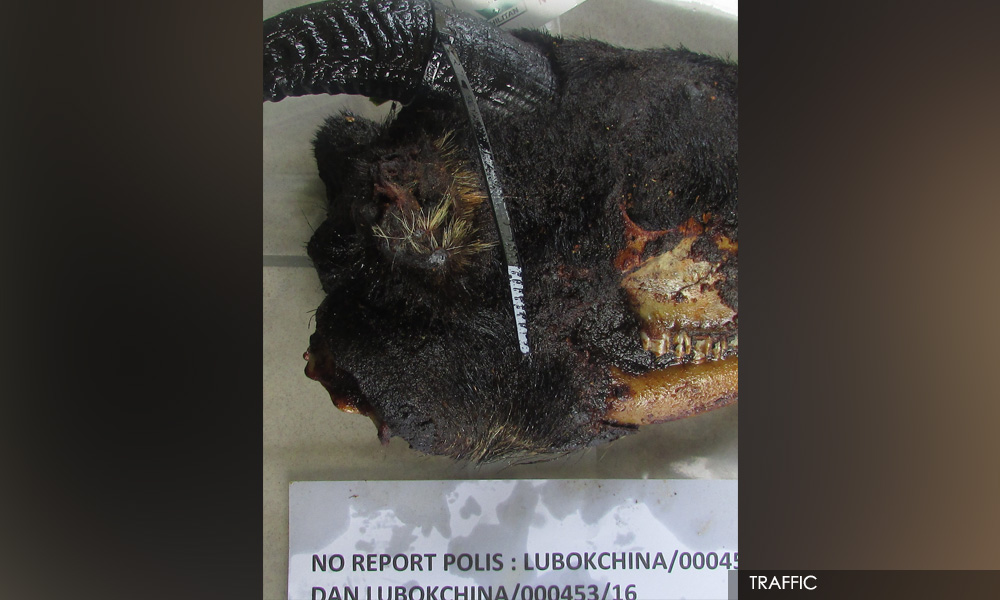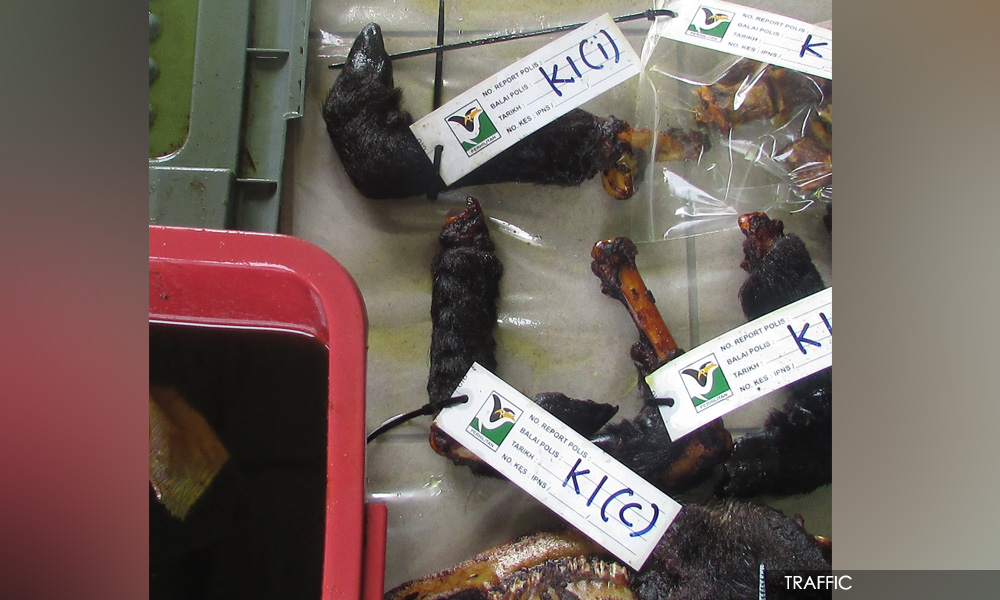The endangered Sumatran serow is hunted for its meat, traditional medicine and even for use in witchcraft.
However, a new report has found that courts in Peninsular Malaysia are meting out stiffer penalties against poachers of the wild mountain goat.
In a statement, the anti-wildlife trafficking NGO Traffic said there were five known convictions for poaching the animal between 2005 and 2010.
This resulted in a total of RM8,400 in fines and three months of jail time.
In contrast, there were four convictions since 2017 up to April this year, which resulted in fines totalling RM1.7 million and 93 months of prison time.
The highest of these penalties was for one case in 2017, where two poachers were convicted for illegal possession of the head of a serow and other body parts in a forest reserve in the state of Pahang.

They were sentenced to fines totalling RM1.2 million and a total of 48 months of imprisonment, and a further six months’ jail if they failed to pay the fines.
“The high fines and lengthy jail terms send a clear ‘hands-off’ message: These are significant penalties against harming a species whose fate is always overshadowed by concern for iconic animals like tigers and elephants,” Traffic Southeast Asia director Kanitha Krishnasamy said in a statement.
The findings are based on an analysis of 18 poaching cases involving Sumatran serows, in which those convicted have been sentenced by the courts between January 2013 and April this year.
Traffic and the Department of Wildlife and National Parks (Perhilitan) are jointly releasing a report on the finding today.
Traffic quoted Perhilitan director-general Abdul Kadir Abu Hashim as saying that he hopes the stiff penalties would show that Malaysians don’t believe in superstition and urged anyone with information on wildlife crimes to report to authorities.
“We hope that the strong enforcement action and penalties handed out by the courts send a clear message and that Malaysians don’t believe in unfounded superstitions that are compromising the survival of a unique species,” Abdul Kadir was quoted as saying.

The Sumatran serow can be found in Sumatra, Peninsular Malaysia and southern Thailand.
It is classified as a ‘vulnerable’ species under the Red List of Threatened Species of the International Union for Conservation of Nature’s (IUCN), due to its declining population. The serow is a protected species under Malaysian law.
Apart from poaching for food and medicinal purposes, the IUCN lists habitat destruction due to deforestation and mining activities in limestone and quartz ridge quarries as threats faced by the animal.
IUCN’s website reports that Sumatran serows in Malaysia are scattered in small, isolated populations and total between 500 and 750 animals throughout the peninsula.
However, it cautioned that the basis for these estimates is not clear.

